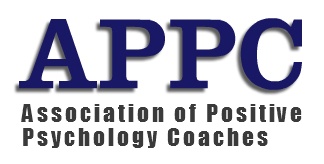What’s on the horizon for the profession of coaching?
Let’s look at today’s trends and then imagine the implications…
TREND: With artificial intelligence expected to replace many humans in professions that rely on knowledge and linear thought, such as medicine and law, thousands are training for fields, such as coaching, where intuition, creativity, people skills, and communication tools are more difficult to replicate in machines.
TREND: Coaching skills have become wide-spread among workers who manage others.
TREND: Coaching horror stories are on the rise.
TREND: Hundreds, if not thousands, of privately-own coach training schools have formed.
TREND: However, coach training is increasingly found in universities with sky-high tuition.
TREND: As the climate crisis continues to grow, distance communication, working from home, virtual meetings, and other forms of distance work will rise.
TREND: Webinar training tools, video chat, and other distance-learning and communications systems are evolving and improving.
TREND: Scientific Research on coaching is on the rise, proving a peer-reviewed scientific basis for coaching results.
TREND: Positive psychology has become a source of powerful coaching tools.
TREND: It is too late to prevent climate change, climate resilience for seven billion people, is a worldwide goal, and resilience is a top deliverable of positive psychology coaching.
TREND: Neuroscience and neuroplasticity powerfully inform effective coaching interventions.
TREND: Technology will continue to disrupt modern life at an ever-faster pace, with most people experiencing several major transitions in their lifetimes.
TREND: The number of coaching professional organizations and certifications that claim to be the ‘best’ continues to increase.
TREND: Professional coaching can now be found in virtually every part of the world.
TREND: Movements have been afoot, around the world, to regulate life coaching and other forms of professional coaching for decades, but so far, coaching remains unregulated.
TREND: Most coaching clients say they prefer to work with certified coaches.
If current trends in coaching continue, what is likely to happen in…
10 years:
Coaching Growth: The number of new professional coaches swelling the ranks will continue to grow. The number of professional coaches will level off over time, with a less-prepared, less-motivated coaches dropping out, due to increased competition.
Coaching reach: Coaching will no longer be considered exotic or only for the rich and famous. It is almost as common as personal training, today. In addition, non-professional coaches will exist throughout society and many people will experience the benefits of coaching from childhood onward.
Coaching delivery: Technology will provide coaches with excellent options for coaching their clients internationally, but local in-person connections will continue to be important, as technology continues to integrate online with offline. Coaching in corporate settings may continue to be delivered person-to-person, but most coaching will be likely to be delivered via computers, smart phones, and other mobile devices.
Coaching fees: Coaching fees have traditionally been sky-high since coaching’s inception. Fees will level off, with a furthering split between a relatively small group of elite certified coaches, who deliver high-end, high-paid coaching, and a much larger group of coaches who offer lower-paid services.
Coaching regulation: Professional coaching may be regulated in some countries, with many more in the process of developing regulations. These regulations will require coach-specific training, certification and/or college degrees, as well as adherence to standardized codes of ethics as requirements for coaches who coach for pay.
Coach training: Coach training via teleclass will go the way of the buggy whip. Many privately owned coaching schools will go out of business, leaving mostly coach training schools at accredited universities. Coach training will be delivered via live and recorded multi-media distance learning and less via live training in hotel conference rooms. As universities attempt to take over the job of educating coaches, the cost of coach training will skyrocket (Ex: Currently Penn State University offers the Master of Applied Positive Psychology for Life Coaches, at a cost of over $50,000 for one year of training.)
Coach certification: Coach certification will increasingly move toward research-based coaching skills, with peer-reviewed research generally preferred. To meet this demand, new certifying bodies, like the IAPPC, will emerge as important certifiers of coaches to meet this demand.
Coaching skills:
Certifications and degrees: Consumers will commonly be aware of coaching horror stories and will know not to work with uncertified coaches. There will be no one certification, whether from a not-for-profit organization, or from a school, that dominates or is preferred – this will lead to further confusion amongst those who hire coaches, as well as those who want to become coaches. Newer coaches will have coaching-related degrees, certifications and/or certificates from schools and universities. Older coaches, those with years of coaching experience, but not the newer certifications and degrees, will survive only if they have excellent reputations as effective coaches.
20 years:
Coaching will be a mature profession that continues to evolve. Virtually all professional coaches will be trained and certified, and coaching regulation will be the norm. People will expect much more from professional coaches, partly because amateur coaches will be everywhere and partly because the dramatic transformations that occur with high-quality coaching will be expected, not just hoped for. Hyper-complexity, via technology and climate change, will be challenges that prompt people to hire coaches more often.
More dramatically, as a result of coaching's growth, society will evolve, with more people living values-driven lives. People will upgrade their expectations of life and will find creative ways to satisfy their new standards. Non-professional coaches will exist everywhere in society and many people will relate to one another with a ‘coach approach’. It will become common for people to be coached at every stage of life. What is considered masterful coaching today will be considered average professional coaching.
30 years:
Society will continue to transform due to the effects of climate change, pandemics, artificial intelligence, and professional coaching, and coaching will be a highly respected profession. Excellent professional coaches will continue to earn high fees, but professional coaching will be regulated virtually everywhere. In addition, people throughout society will be coaching others for free. Since coaching can be used for ‘evil’, there will be both positive and negative effects, but the awareness that comes from coaching and being coached will make it harder to manipulate groups of people. Far more will be expected and required from politicians, business leaders, teachers, coaches, and other leaders. Individuals will live their lives more courageously and having a coach to partner through important transitions, will be considered an absolute necessity, which means virtually everyone will have a coach.
What do these coaching trends mean to you, the new coach?
- The future looks extremely bright for the cream of the crop. If you plan to be a professional coach and you want to be well paid, do whatever it takes to distinguish yourself as one of the best. That includes training, certifications, and evidence-based coaching skills.
- If you want to stand out quickly, take advantage of this small window of time to study with a privately-held school that will help put you head and shoulders above this increasingly crowded field. If you can afford to spend $50,000 on your training and there is a good-quality university coach training program that will actually teach you to coach, consider it. Because currently most universities only teach about positive psychology, leadership, and other related fields, but neglect in-depth skills and philosophies that make for great coaching and for coaching success.
- Get at least one coach certification from an independent organization, such as the IAPPC. Consider getting more than one such certification, since that may soon be a requirement for practicing coaching where you live and it’s impossible to predict which current organization, if any, will prevail.
- Continue to upgrade your knowledge and skills throughout your career. It will help you stay up-to-date on important trends, earn higher fees, and it’ll help you stay in business if/when regulations occurs.
The School of Coaching Mastery Certified Positive Psychology Coach Program provides coaches with the skills and certifications they need to prevail now and well into the future. Get the facts about this innovative program...















